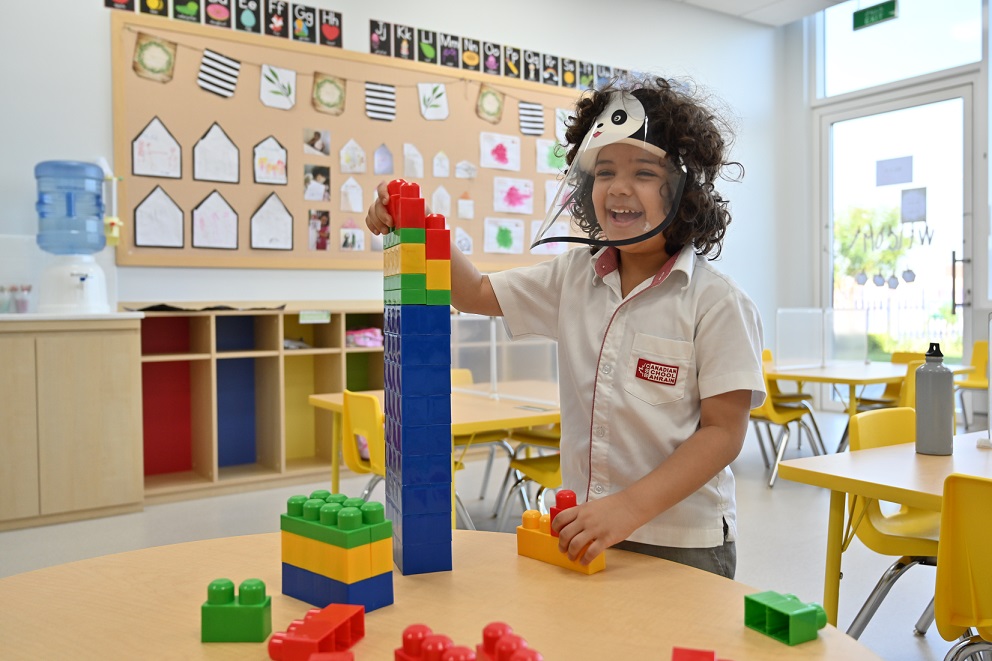Brains are created, not born. Child development is an influential and interactive process that is not prearranged. No more than 2,000 days connect when a child is born and when he/she will be in playschool. During these 2000 days, the brain’s structural formation develops and creates either a sturdy or frail foundation for future learning. Canadian School Bahrain believes early childhood development is a strong foundation in early infancy, just like building a structure; the foundation is the key. Early education gives a child an edge over the other kids determining success for years in the future since its steps ahead from the others.
Usually, when asked to consider brain development in children, most have a propensity to think about knowledge and intelligence. Nevertheless, what determines a child is learning life skills; even being happy, for that matter, is a skill that psychologists use (mostly termed as an executive function). An early brain development surrounded by books and educational toys leaves a positive impression on a child’s brain. Researchers found that if a child gets more mental stimulation around four, the more mature and enthusiastic and their minds will be to learn language and cognition.
Even before the child steps foot in kindergarten, their brains grow and build through responsive and warm relationships in early childhood occurrence. Learning is established earlier, even before birth. Brain development occurs during the first days, months, and years in a kid’s life; it is motivated and enhanced in engagement and language communication with caring adults.
The first 2000 days of a kid’s life is likely to set the foundation for the emotional health and physical for their entire life span. The brain grows at an unbelievable lighting speed; 700 new neurological connections are formed every minute within the time connecting birth period and five to six months. Knowledge matters when it comes to neurological relations; connections are strengthened by experiences that cannot be eliminated. Kids that are open to challenging yet possible experiences in loving relationships are expected to build up to higher-order thinking, social and vital emotional skills. Children available to the elements of continual stress and negligence are more likely to make stronger neurological connections reacting to nervous tension and trauma.
Intermittent stress is a normal part of life. Kids are discovering and identifying stress lean towards adults in their lives to calm and help them. But, when stress transpires regularly and mainly without adult interference, it can hamper brain growth and development. When a child undergoes stress, a series of physiological responses take place. When such reactions linger at a delicate state for a long-drawn-out period without the supportive relationships to intervene, it is called toxic stress. A single, stable, and supportive relationship can help early childhood development, flexibility to cope with hardship, and focus on building the vital neurological connections required for a child’s healthy cognitive and social-emotional development. Studies demonstrate how effective early learning programs can prepare kids for success in school. Contact Canadian Bahrain School for more information today!


